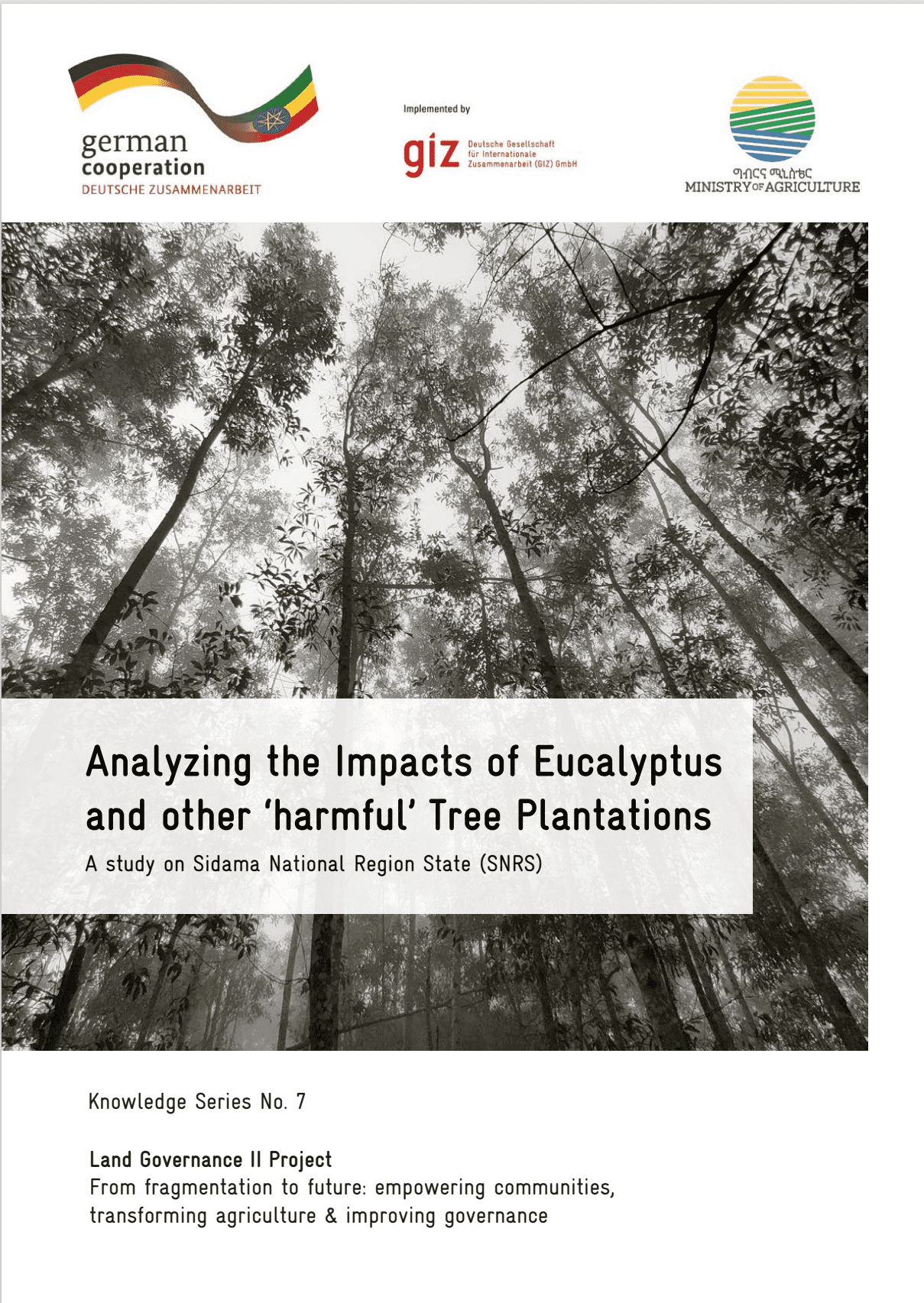Resource information
This study focuses on evaluating the impacts of eucalyptus tree plantations and other tree species on various aspects such as agricultural production, water resources, soil nutrients, natural forests, and biodiversity in the Sidama National Regional State (SNRS) of Ethiopia. While eucalyptus plantations have been acknowledged for sustaining local livelihoods, concerns have arisen regarding their adverse effects on water quantity and quality, soil fertility, biodiversity, and crop productivity.
The study aims to provide comprehensive insights into the social, ecological, and biophysical implications of eucalyptus plantation expansion, guiding decision-makers in the SNRS on where, why, and how to grow and manage eucalyptus trees effectively. It addresses the lack of comprehensive studies in the region, particularly concerning the impacts of eucalyptus plantations on rural community livelihood sustainability and the broader economic implications.
Through a literature review, outline, and roadmap, the project outlines methodologies and a detailed work plan to assess the impacts of eucalyptus and other tree species on food production and livelihood sustainability. The findings will inform the development and implementation of land administration and use regulations in the SNRS, ensuring sustainable management of biophysical resources while supporting local communities' well-being.


